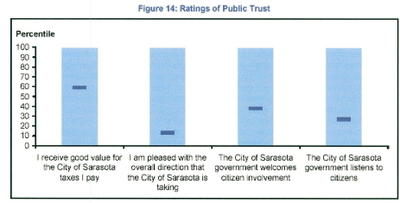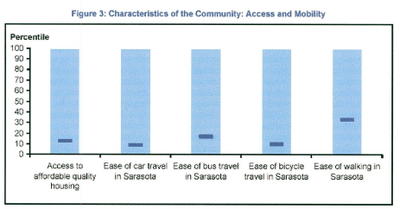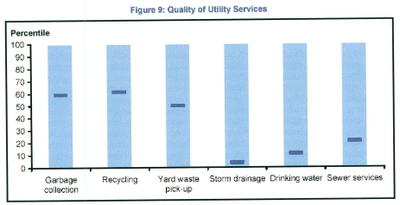There is some very interesting information here. We are surprised that neither the city nor the media has said much about this survey, to date.
The data is presented in several different ways. The basic data shows what people in Sarasota think about where we live and how our local government meets their expectations. Another section of the report shows how our views compare to how people in other cities (comparable in size to Sarasota) view their own city.
In the basic data of the report we find that
- 67% of the residents in Sarasota believe access to affordable housing is poor.
- 76% believe that too much growth is a problem (47% a major problem, 29% a moderate problem)
- 80% believe traffic congestion is a problem (44% a major problem, 26% a moderate problem)
While all of us choose to live in Sarasota, we all recognize that Sarasota could be better.
The comparison to other similar cities tells us whether a problem is universal or is it a problem particular to Sarasota. These results are shown in graphic form below.

This graph shows that, compared to cities across the U.S. we are not pleased with the overall direction of the city. There are also problems with welcoming citizen involvement and listening by our government.

Here we see that we rate ourselves quite low in access to affordable housing and ease of travel, whether it be car, bus, biking or walking.

This graphic comparison shows that we believe there are significant problems with storm water, drinking water and sewer services.
We will post more material from this survey and make comments on the data and the survey itself.
There is information here that should provide good direction to our city leaders. We hope they look at this data carefully and determine why the citizens have identified these problems. Then, of course, policies and strategies need to be set to address these issues.
Incidentally, our access to retail, cultural activities and library services rated amongst the highest across the U.S. While we may need to make sure access to these remains good, it would seem that city priorities should be shifted to those areas where we have definite problems.

No comments:
Post a Comment